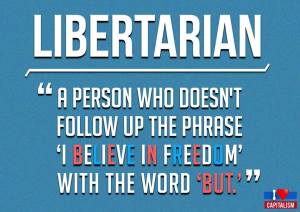Author’s Note: Sooooo…hi. It’s been awhile. It seems I haven’t posted anything on this site for a year and a half. And even that piece was only one of three pieces I wrote here in all of 2014. But while I’ve gotten away from regularly blogging, I do, now and again, find the need to get some things off my chest, and this is as good a place as any. So, with that said, let’s move forward…
 “New Atheists” have a serious Islamophobia denial problem. Contrary to how prominent New Atheist figures describe it, Islamophobia is not about merely objecting to religious criticism; rather, it’s about acknowledging persecution. Some innocent people do in fact get marginalized and persecuted for no other reason than being perceived as Muslim, a scary “other.” And I only use the words “perceived as” because there are many cases where Sikhs also face attacks because they are mis-identified as Muslims. This is a problem that magnified for a long time after 9/11 and has once again flared up in the wake of the tragic attacks in Paris and San Bernardino. There are plenty of undeniable examples of violence and persecution driven by Islamophobia (See: here, here, here, here, here, here, here, here, here, here, here, here, here, here, here). That’s just a small sample.
“New Atheists” have a serious Islamophobia denial problem. Contrary to how prominent New Atheist figures describe it, Islamophobia is not about merely objecting to religious criticism; rather, it’s about acknowledging persecution. Some innocent people do in fact get marginalized and persecuted for no other reason than being perceived as Muslim, a scary “other.” And I only use the words “perceived as” because there are many cases where Sikhs also face attacks because they are mis-identified as Muslims. This is a problem that magnified for a long time after 9/11 and has once again flared up in the wake of the tragic attacks in Paris and San Bernardino. There are plenty of undeniable examples of violence and persecution driven by Islamophobia (See: here, here, here, here, here, here, here, here, here, here, here, here, here, here, here). That’s just a small sample.
Then of course there’s the case of Ahmed Mohamed, dubbed by various news outlets as “clock kid.” This was the case of the 14-year-old boy who was detained by police while at his Texas high school after bringing an electric clock he assembled to school to show his science teachers. It was confused for a bomb despite the device having no explosive material. This might have made for an hilarious sitcom misunderstanding if the arrested party was a white, Christian kid named Billy or Tommy. But of course this sort of confusion would never happen to a white, Christian kid named Billy or Tommy. And we all know that. Well, perhaps everyone except famous atheist Richard Dawkins, who proceeded to cyberbully Ahmed Mohamed and encourage his Twitter followers to do the same for months.
Dawkins insisted the authorities were in the right to detain the child for hours for bringing a clock with no explosive material of any kind to school. Dawkins also claims the clock in question was just bought in a store, taken apart and re-assembled, and so therefore Mohamed should be criticized for cheating. Dawkins’ tweets about Mohamed grew increasingly more unhinged after news that the Mohamed family were suing the school for millions of dollars over the incident. Insisting that his primary issue was Mohamed’s cheating by falsely claiming to have built the clock — an accusation that I believe still remains unsubstantiated — Dawkins says the real issue at hand was the serious problem of children using their childhood as an excuse to avoid criticism. And, as his totally random example of why children DO deserve criticism, Dawkins posted an image of ISIS child soldiers. Of all the examples one might think to use, that seemed like a very, very odd choice. Not least of all because Dawkins has met accusations of Islamophobia in the past or that nobody in their right might believes these ISIS child soldiers had any real choice given the circumstances they were born and raised in, or the fact that Richard Dawkins himself has spent much of the last decade arguing the opposite point, that indoctrinating young children into religion is “child abuse.”
But to be fair to Dawkins, today he posted the following tweet:

The article he linked to, about a case of Islamophobic violence, is here. One reply to the tweet read: “not saying you’re responsible, but hate speech against groups of people – like you & others engage in – fuels these flames.”
Now I started this piece by saying New Atheists had an “Islamophobia denial” problem as opposed to saying they’re Islamophobic. In Dawkins’ case, this tweet at least shows he can see bigotry and unfairness against people for simply being Muslim when there’s absolutely no ambiguity at all (much like how many people who did not condemn the shooting of Michael Brown in Ferguson did comdemn the shooting of Eric Garner in New York). But Dawkins quite often attacks and mocks the notion of Islamophobia, a term he says is used to silence legitimate criticism of “bad ideas.” And he’s not alone.
That brings me to Sam Harris, another major figure of the so-called “New Atheist” Movement that sprung up around 2006. I think a strong case can be made for Harris promoting Islamophobia and being Islamophobic himself. His public policy prescriptions certainly make a great case for that. Those articles have been written. But not enough is said about Sam Harris also being an Islamophobia denialist, even apologist. A recent Salon article highlighted this very point:
All of this can be excused, but only up to a point. What is inexcusable, and what should preclude Sam Harris from participating in any more projects on Islamic Reformation, is his complete lack of awareness about Muslims as they actually live today. He censures American Muslims for paying more attention to the coldblooded massacre of three American Muslims at the University of North Carolina than to the crimes of ISIS — proximity to Raleigh over Raqqa may explain why — before going on to say that hate crimes against American Muslims are “tiny in number, often property-related, and still dwarfed five-fold by similar offenses against Jews.” Reread that sentence and take in the moral callousness of this thinker.
The FBI says there are now 100 to 150 anti-Muslim hate crimes committed in the United States every year, a five-fold increase from pre-9/11 levels, and that’s before the San Bernardino attacks and Donald Trump’s fascistic fear-mongering. Furthermore, the vandalism and destruction of property is not something that should be taken lightly. Throughout American history, racially and religiously motivated violence desecrated the physical spaces minorities inhabited, threatening them everywhere, at all times, even in their places of worship. Anti-Semitism is a vile and contemptible form of group-hatred, but violence done against one minority should never be downplayed because there is greater violence against another minority. Harris has the supreme privilege — a rich, white man’s privilege, I should add — of remaining aloof and ignorant about these crimes, and it makes one wonder if he knows any Muslims beyond Maajid Nawaz and the two others he always cites, or if he has ever set foot in a Muslim-majority country and talked to more than a handful of Muslims.
Not surprisingly, Harris openly mocked this piece on Twitter as part of what he sees as Salon’s bias against him. I say “not surprisingly” because I can’t recall a single instance of Sam Harris ever publicly acknowledging a single critic of his so much as properly understanding him and honestly representing his positions. It’s only slight hyperbole to say that, at this point, Harris is almost more famous for his constant accusations that his critics are misunderstanding him or deliberately misrepresenting him than for any of the actual content he produces. Cenk Uygur of The Young Turks did a brilliant job of showing how Harris pulls this off by using doublespeak to effectively tow the line between two opposing positions. In this way, when you cite particularly distressing quotes like, “the people who speak most sensibly about the threat that Islam poses to Europe are actually fascists,” (source) Harris or his obsessively devoted fans will insist you’re taking him out of context and then proceed to cherry-pick other statements he’s made that express anti-fascist sentiments. Or, when Harris says, “Given a choice between Noam Chomsky and Ben Carson, in terms of the totality of their understanding of what’s happening now in the world, I’d vote for Ben Carson every time,” he provides so many hedges that he’s essentially disowned the entire quote without ever admitting he’s backed down or was only being hyperbolic. For the record, the person Harris says has a greater understanding of geopolitics than Noam Chomsky can’t name a single U.S. ally in the Middle East. Of course this doesn’t matter because Harris also said, “Ben Carson is a dangerously deluded religious imbecile… The fact that he is a candidate for president is a scandal. But at the very least he can be counted on to sort of get this one right. He understands that jihadists are the enemy.” So the quotes cancel each other out entirely and therefore, it’s like he said nothing at all. Except that, to me anyway, it still kinda seems like he’s saying that, DESPITE Carson’s idiocy, Harris agrees with Carson’s crazy positions on Middle East policy. Which is problematic. To say the least.
Ironically, despite Harris’ constant outrage of supposedly being misrepresented himself, he has no qualms about promoting blatant, cartoonish caricatures himself in the form of what he calls “the regressive left.” He frequently uses this term to dismiss any who dare add any nuance to the discussion of Jihadi terrorism beyond Harris’ simplistic, caveman-like Muslim=bad rhetoric. There is a huge distinction between acknowledging the fact that U.S. foreign policy has negatively impacted many civilians in the Middle East, and that that is one factor in the disenfranchisement that leads some to join terror groups and Harris’ straw man of liberals excusing Islam entirely and just blaming the victims for the terrorism that comes to our shores. And while I agree with Harris that Western nations should be outraged at even the heinous human rights violations done by U.S. allies like Saudi Arabia in the name of Islam, it’s important to recognize the desired social changes must happen gradually and that our influence is contingent on our not rocking the boat too much with leaders in Muslim nations. First of all, it’s important to recognize that Jihadi terrorists do not represent all Muslims by a long-shot; rather, Muslims remain the greatest victims of organizations like ISIS or Boko Haram. Next, the geopolitical reality is that the U.S. can’t defeat groups like ISIS alone without the local Islamic nations doing much of the work. Alienating those nations will drive more disenfranchised to hate the United States and join groups like ISIS. It will also weaken the kind of Western influence that affect the kinds of social reforms we want to see in those regions. It’s all very complicated, and there is no perfect solution to every problem we see in the Middle East, the rest of the Islamic world, and religion in general.
Look. I used to really admire both Richard Dawkins and Sam Harris. In fact, I’m almost positive I could go through the archives of this very blog and find pieces championing both. But the world’s changed. Or maybe I’ve changed. Or both. I don’t know. But I do know that I used to oppose the term “Islamophobia” like they constantly do, insisting it’s just a term that’s thrown out to deflect legitimate criticism of the bad ideas within the Islamic religion, which is just as full of bad ideas as all the other religions. And I used to hate the term “New Atheists.” Now, I just see it as a convenient way to distinguish skeptical, reason-based atheism from those Islamophobic or Islamophobia denialist New Atheists who just insist everything they’re doing is based on reason when it isn’t, much like the Klingons on Star Trek falsely insist everything they do is honorable.
The bottom line is religious beliefs should be criticized, but reason-driven atheists should not provide cover for such irrational, bigoted behavior against Muslim people. As the late public intellectual and New Atheist author Christopher Hitchens once said, “Never be a spectator of unfairness or stupidity.” I share the sentiment expressed by Jeff Sparrow over at The Guardian that atheism can be reclaimed from these increasingly more toxic voices, that it can be saved. But if we atheists are to reclaim the name, we’re going to have to break from the cult of personality around figures we once looked up to and find new, better representatives for rationality, while also being sure not to make the same mistake of creating more cults of personality.



 Posted by Michael Rosch
Posted by Michael Rosch 


 If ever you wanted to learn how to be a master at public relations, there’s no better individual to learn from than Pope Francis. This guy is such a good salesman, he could sell mink coats to PETA.
If ever you wanted to learn how to be a master at public relations, there’s no better individual to learn from than Pope Francis. This guy is such a good salesman, he could sell mink coats to PETA.  Unless you’ve been living on Krypton lately, you’re probably aware that the latest Superman film, “Man of Steel,” has hit theaters. And over the last few days, it seems like every entertainment reporter has jumped on the “
Unless you’ve been living on Krypton lately, you’re probably aware that the latest Superman film, “Man of Steel,” has hit theaters. And over the last few days, it seems like every entertainment reporter has jumped on the “


 Several months ago,
Several months ago,